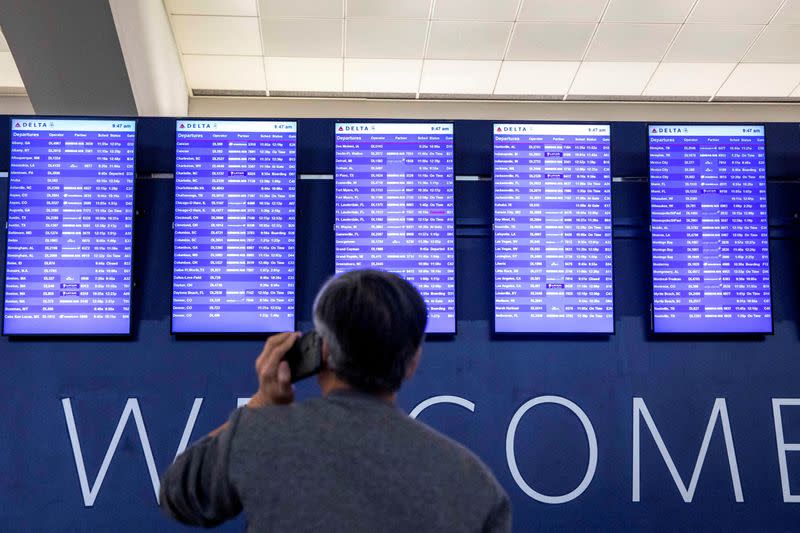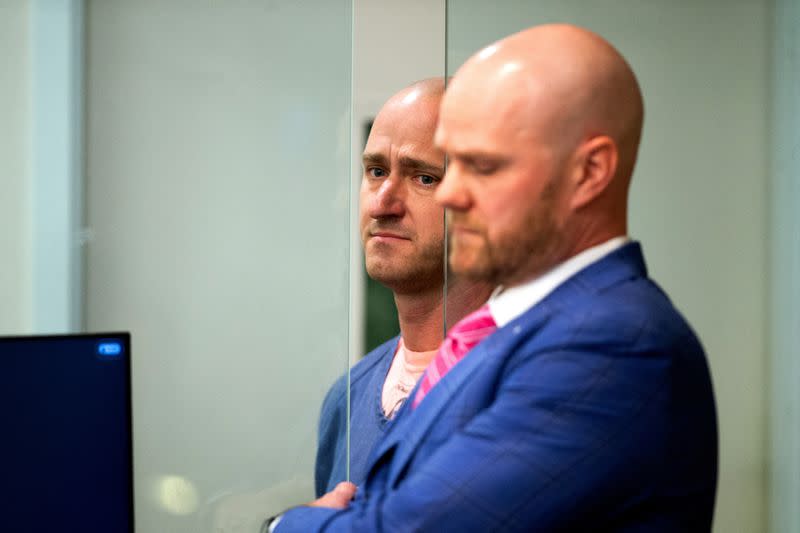US must do more on mental health of aviation professionals -safety official
By David Shepardson
WASHINGTON (Reuters) - The United States must do more to prioritize the mental health of pilots, air traffic controllers and other aviation professionals, a top safety official said on Wednesday, after an off-duty Alaska Airlines pilot allegedly tried to crash a commercial flight in October.
The pilot was charged with trying to disable the engines of a jet in flight and told police afterward he was suffering a nervous breakdown.
National Transportation Safety Board Chair Jennifer Homendy said at a day-long forum on the issue that regulators must empower people to get help.
"There is a culture right now that you either lie or you seek help. We can't have that. That's not safety," she told reporters.
Pilots are required to report certain mental health conditions to aviation medical examiners, who determine fitness to fly.
Homendy cited challenges such as controllers being forced to work mandatory six-day work weeks because of employee shortages, and backed amnesty for pilots and others to "come forward and be honest about struggles."
Jeremy Horn, managing safety director of Horizon Air, a unit of Alaska Airlines, said the incident involving the off-duty pilot in the cockpit "jump seat" of the Oct. 22 Horizon flight had prompted a wider discussion about mental health.
Horizon is holding a quarterly safety day on Monday focused on self-care.
The Federal Aviation Administration said last month it was naming a pilot mental health committee with about 20 members to provide recommendations to encourage pilots, air traffic controllers and others to report mental health issues.
The FAA said it will address open recommendations from a July inspector general's office report which found the agency's ability to reduce safety risks is "limited by pilots' reluctance to disclose mental health conditions."
(This story has been refiled to say safety official, not regulator, in the headline)
(Reporting by David Shepardson; Editing by Richard Chang)


